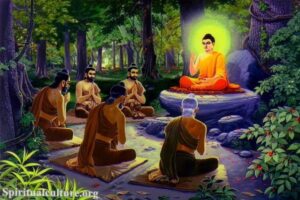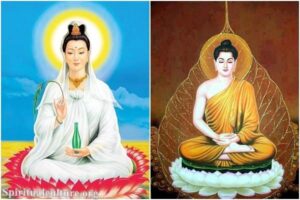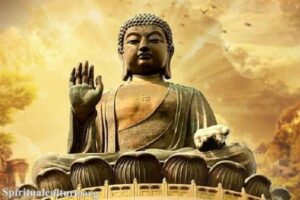Theravada Buddhism is one of the two major traditions of Buddhism, along with Mahayana Buddhism.
Theravada Buddhism is the oldest surviving Buddhist school. It has a long and rich history dating back to the time of the historical Buddha, Siddhartha Gautama, in the 6th century BCE. After the Buddha’s death, his teachings were passed down orally through a community of monks and lay followers known as the Sangha.
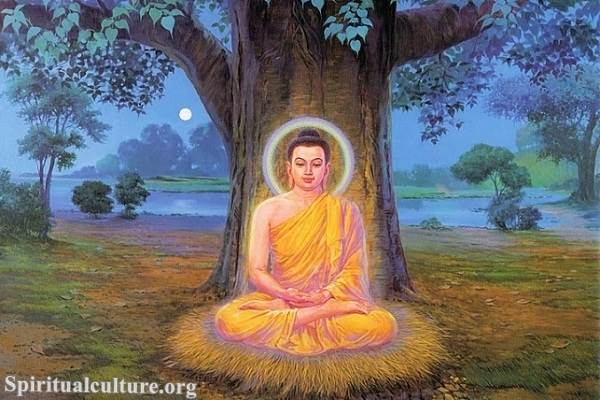
Over time, the Buddha’s teachings were written down in various scriptures, including the Pali Canon, which is the primary source of teachings for Theravada Buddhists. The Pali Canon is a collection of texts written in the Pali language that is believed to contain the teachings of the Buddha.
Theravada Buddhism spread from its original home in India throughout Southeast Asia and beyond, and today it is the dominant form of Buddhism in Sri Lanka, Thailand, Laos, and Cambodia, as well as in Burma, Vietnam, and parts of China, Korea, and Taiwan.
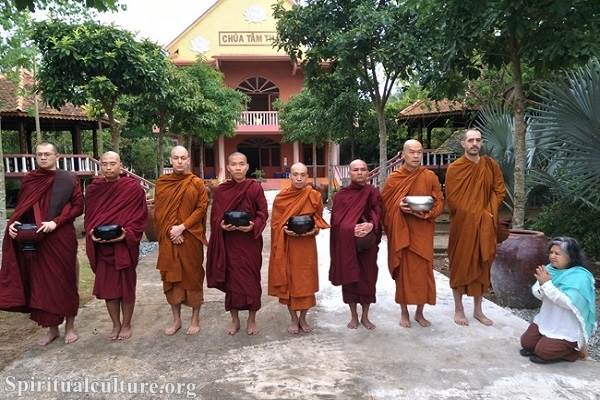
Theravada Buddhism has also gained a significant following in the West, with many Westerners practicing and studying this tradition in countries such as the United States, Canada, and Europe.
Theravada Buddhism is based on the teachings of the historical Buddha, Siddhartha Gautama, and is often referred to as “The Way of the Elders” or “The Ancient Teaching.” It is characterized by a focus on the Pali Canon, a collection of scriptures written in the Pali language that are believed to contain the teachings of the Buddha.
Theravada Buddhists emphasize the practice of mindfulness and the attainment of personal enlightenment through individual effort and the cultivation of virtue. They also follow the Five Precepts, guidelines for ethical conduct, and the Eightfold Path, which outlines the steps to reach enlightenment.
Theravada Buddhism is often associated with the concept of Nibbana (nirvana in Sanskrit), which is a state of enlightenment in which the individual is free from suffering and the cycle of rebirth. It is believed that through practicing mindfulness and cultivating virtue, an individual can achieve Nibbana in this lifetime.
Theravada Buddhism emphasizes individual responsibility for spiritual development and the importance of personal experience and insight. In this tradition, the goal is to become an arhat, a person who has attained enlightenment and is no longer subject to suffering or the cycle of rebirth.
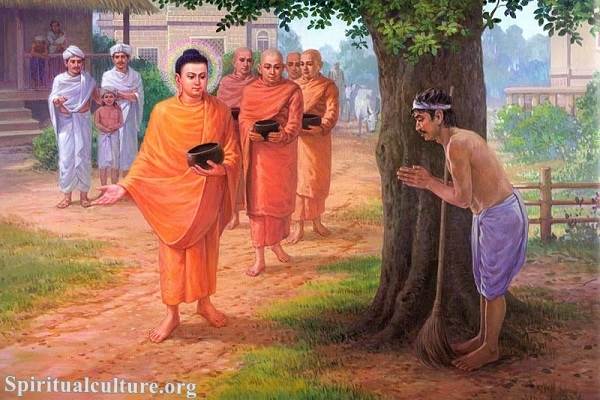
Theravada Buddhists follow a monastic discipline called the Vinaya, which regulates the conduct of monks and nuns. These disciplines include the Five Precepts, guidelines for ethical conduct, and the Eightfold Path, which outlines the steps to reach enlightenment.
Theravada Buddhists also strongly emphasize the study and practice of meditation. In this tradition, meditation is seen as a way to develop concentration, clarity, and understanding and to cultivate mindfulness and insight. There are many different types of meditation practices in Theravada Buddhism, including mindfulness of breathing, loving-kindness meditation, and contemplating the Buddha’s teachings.
In addition to meditation and the study of scriptures, Theravada Buddhists also engage in devotional practices such as chanting and offering flowers and incense to statues of the Buddha and other deities.
Theravada Buddhism is a diverse and multifaceted tradition, and individual practitioners’ specific practices and beliefs may vary. However, the core principles of Theravada Buddhism, including the Four Noble Truths, the Eightfold Path, and the concept of Nibbana, are central to the tradition and are shared by all Theravada Buddhists.
Theravada Buddhism has significantly influenced the development of Buddhism as a whole, and its teachings and practices continue to be studied and practiced by Buddhists worldwide.
